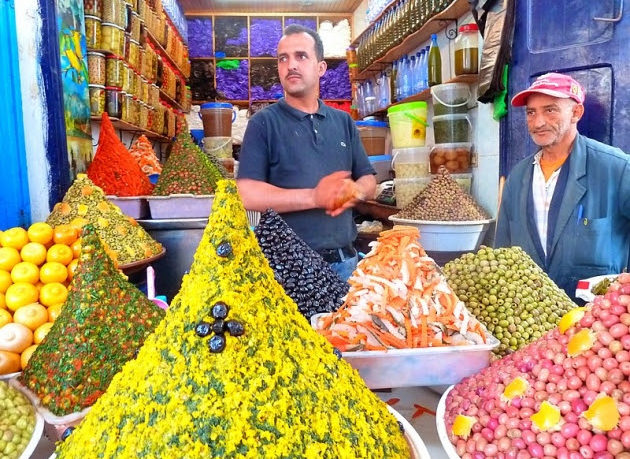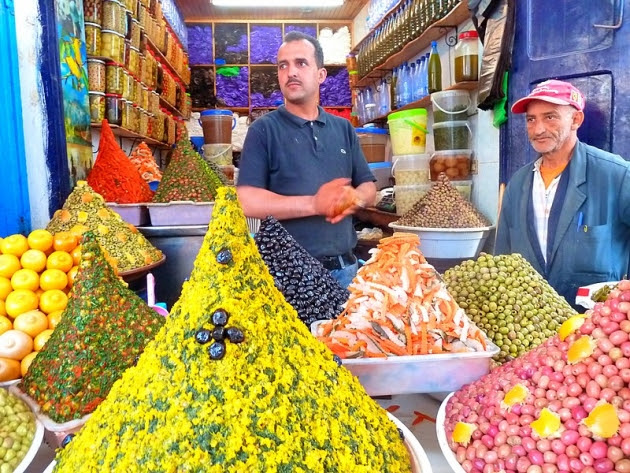Washington Institute
Mohamed Chtatou
Dr. Mohamed Chtatou is a political analyst and professor of education science at the University of Rabat.
At the height of the Arab Spring, King Mohammad VI revamped the constitution under indirect duress, giving up some of his extensive powers to the head of government. Moroccan people greeted this move with delight and saw in it a probable initiation of a real devolution of power and the beginning of some form of a much-desired incremental democracy. However, the continued governmental failures to enforce the constitutional changes of 2011 have pushed citizens to take democracy into their own hands, boycotting major foreign businesses in Morocco and expressing their concerns through online organization. These efforts are the natural conclusion of current politicians’ abuses of the privileges of their office and focus on financial gains over the will of the people, and the boycott’s success demonstrates how the solution to financial pressures on the poor may be to turn them back on the country’s elites.
The Government’s Incompetent Islamists
Upon coming to power for the first time after Morocco’s constitutional changes, the exaggerated electoral promises of the Justice and Development Party (PJD) fizzled out miserably in the early stages: youth employment increased dangerously, corruption flourished, abuse of authority continued unabated, and embezzlement went on unchecked.
Moreover, representatives of the Islamist party—supposedly the epitome of religious virtue—have been caught red-handed in sexual scandals, instances of misuse of power, and situations of straightforward lying. The public has been baffled by what has unfolded in the political scene, as Islamist politicians have turned out to be somewhat worse than the old-guard secular politicians in their breaches of public trust, despite the PJD’s prior vilification of secularists due to the perceived ills of atheism and westernism.
PJD won reelection in 2016, in all probability due to a lack of alternatives. However, establishment figures have since mobilized Aziz Akhennouch, a businessman-cum-minister worth $1.78 billion, to challenge the PJD in Morocco’s next elections in 2021 as the head of the administrative, or palace party, Rassemblement National des Indépendants (RNI). This date will in all probability spell the end of the Moroccan Islamist experiment in governance.
Nevertheless, the status of the RNI and its deep connections to Morocco’s business elite, not least demonstrated in the figure of Aziz Akhennouch, have pushed those on the political and geographic periphery to explore other measures of interacting with the government, as their needs have not been met through Morocco’s ballot boxes. Since March, Moroccan observers have witnessed the development of a peaceful, economically driven revolution to push the government towards a true democracy in a movement that has stayed in power and succeeded where other demonstrations have failed.
The Hirak protest movement—based in Alhoceima—provided a powerful precedent on which these economic protests are based, despite the former’s suppression. As the leaders of peaceful protests in Alhoceima, Zagora, and Jerada were sent to prison on charges of sedition and treason, they became heroes and icons for the majority of the Moroccan population as activists willing to push past the government’s current limits to fight for full democracy and transparency. Taking to the internet, a movement developed on social media calling for their unconditional release and the satisfaction of their rightful demands and complaints. While unsuccessful, this movement has led to other expressions of discontent through the internet, ultimately building up to the cyber boycott.
Economic Pressures on the Ninety Percent
To comprehend the drivers of these boycotts, it is important to understand the economic erosion that many in Morocco have experienced in the past few generations, despite superficial bubbles of wealth enjoyed by the country’s upper class.
During the early years of Morocco’s independence, the late King Hassan II solidified power by enforcing traditional societal notions such as respect for seniority, patriarchal obedience, and tribal allegiance. These methods of consolidating control filtered down to regional elites, where their new centralized control over local economies disrupted Morocco’s extant middle class—itself generally supportive of the monarchy—and pushed them towards destitution.
Traditionally, this group had acted as a buffer between Morocco’s elites and its poor. But upon merging into the latter group, numbers of politically disenfranchised citizens have swelled, with little recourse against the upper class.
By the time Mohammed VI was enthroned in 1999, Morocco’s society was split in two: Morocco’s destitute, poor, civil servants, and some liberal professions were now combined in Morocco’s lower class, while business and government elites remained above.
The establishment has superficially responded by providing easily accessible installment credit, but this stop-gap measure has trapped Moroccan citizens in a ceaseless cycle of loans, shifting many from an already disadvantaged economic situation to actual destitution, total insolvency, and even possible imprisonment over unpaid loans. Concurrently, the price of commodities has risen at an alarming rate in the past few years while most salaries have remained stagnant, meaning that every major purchase has become a strain on most Moroccan households’ family finances.
On the other hand, approximately ten percent of the population—ministers, senior state officials, coopted politicians, army top brass, palace oficiandos, and rich Moroccans—live lives totally separate from most Moroccans, and have completely different opportunities available to them. Many send their children to European or American schools, not trusting the Moroccan educational system, and prepare future generations to take their positions and inherit their influence. This alternate cycle creates a new ruling class that is increasingly removed from the average Moroccan citizen, both literally and figuratively.
Moreover, due to their proximity to state powers, this class benefits from rentier privileges, disguised corruption money, nepotism, and abuses of power. These challenges demonstrate that establishment parties such as RNI, while billed as reforming institutions, have little understanding of nor interest in the economic challenges facing most of the country.
The Advent of Cyber Boycott
Having come to the harsh conclusion that the establishment will be successful in co-opting any party that comes to power through Morocco’s current political system, the ninety percent have now chosen to defend their own interests with the help of the internet, which has so altered Moroccan society’s way of life and communication practices.
In response to the ugly ways in which Morocco’s capitalism has shaped the lives of its citizens, many decided to hit the economy where it hurts through a cyber boycott, the first ever in Morocco and probably in the world.
The boycott started in Facebook, WhatsApp, and other social media outlets circulated by anonymous groups on April 20, 2018 against three brand names: Afriquia petrol stations owned by RNI head Aziz Akhennouch; Centrale dairy products owned by the French industrial giant Danone; and Sidi Ali and Oulmes mineral waters. These organizations were targeted due to their large profit margins at the expense of Moroccan consumers and because of the fact that the government had done nothing to stop them. In the case of Afriquia and the mineral water brands, these boycotts have directly targeted the profits of Morocco’s political and business leaders, as Afriquia is owned by RNI head Aziz Akhennouch and Sidi Ali and Oulmes are both owned by Miriem Bensaleh, ex-president of Morocco’s federation of employers.
The boycott was total and harmful to the companies targeted, spreading offline into newspapers and even to shopkeepers, who would dissuade customers from buying the boycotted brands and even refuse the products from distribution channels. As the months of the boycott dragged on, these companies lost huge amounts in revenue, nor could they effectively prevent the boycott’s continuation. Moreover, the boycott achieved its set objectives: the targeted companies reduced their prices after huge losses, and indirectly and unwillingly initiated an era of Moroccan Cyber Democracy.
Moreover, the Moroccan government’s response to the protests has remained muted: King Mohammed VI during his July 30 state of the nation address called for increased efforts towards social justice in establishment sectors and promised larger governmental development programs to reduce social inequalities. The boycotts have also damaged Akhennouch politically; he is unlikely to be elected to the premiership.
As the American social media (Facebook, Twitter, etc.) helped facilitate the advent of the Arab Spring in 2011, the Moroccan cyber boycott is showing that a digital revolution is a true revolution: peaceful in nature, effective in outcome, and leading inexorably to Cyber Democracy, among other things. Several countries, including Mauritania, are already copycatting the experiment. Perhaps this is a second Arab Spring leading to a more permanent reformulation of the political spectrum in the MENA region and a new era of social justice, equal opportunity, gender equity, personal freedom and full democracy.








